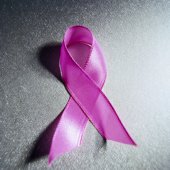
MONDAY, Nov. 8 (HealthDay News) — Obesity isn’t linked with breast cancer risk in Mexican-American women, a new study has found.
Researchers at the University of Texas M.D. Anderson Cancer Center studied 155 Mexican-American breast cancer patients and 333 women of similar ages without breast cancer. The women reported what they weighed at ages 15, 30 and, if they were diagnosed with breast cancer, their weight when that occurred.
They also reported their weight gain between age 15 and diagnosis.
Previous research has found that obese postmenopausal white women are at increased risk for breast cancer. But this study found no association between obesity and breast cancer in Mexican-American women, regardless of menopausal status.
Interestingly, weight gain during adulthood seemed to lower the risk of breast cancer, regardless of menopausal status.
“We found that for every 5 kilograms [11 pounds] of weight gain there was a significant 8 percent decrease in the risk for breast cancer,” Krystal Sexton, a breast cancer disparities researcher at the University of Texas Health Science Center, Houston School of Public Health, said in an American Association for Cancer Research news release.
“However, it is important that we do not send the message that gaining weight prevents breast cancer,” she added.
The reduced risk of breast cancer among overweight and obese Mexican- American women may be due to a shorter lifetime exposure to estrogen, which is associated with breast cancer, according to the researchers. They noted that previous studies have shown an association between obesity and earlier age of menopause among Mexican-American women.
“Women in our study who did not have breast cancer were actually experiencing menopause at an earlier age — especially women who were overweight and obese — compared with women who were overweight and obese and did have breast cancer,” Sexton said.
The study was presented Monday at the AACR Frontiers in Cancer Prevention Research Conference, in Philadelphia.
More information
The U.S. National Cancer Institute has more about breast cancer risk.

